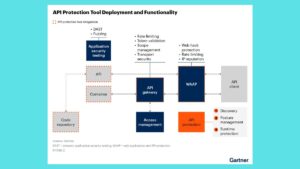The Role of HRTech in Enhancing Employee Experience


In today’s rapidly evolving workplace, employee experience (EX) has become a cornerstone of organizational success. Companies are increasingly recognizing that a positive employee experience not only boosts engagement and productivity but also aids in retaining top talent. Central to this transformation is Human Resources Technology (HRTech). By leveraging advanced HRTech solutions, businesses can create a more seamless, personalized, and satisfying work environment for their employees. Here’s a look at how HRTech is playing a pivotal role in enhancing employee experience.
1. Streamlined Onboarding Process
The onboarding process sets the tone for an employee’s journey within a company. Traditional onboarding methods can be cumbersome and overwhelming. HRTech solutions simplify this process by automating paperwork, providing virtual tours, and offering online training modules. Digital onboarding platforms ensure that new hires have all the information they need from day one, making their transition smoother and more engaging.
2. Personalized Learning and Development
Employees today seek opportunities for continuous learning and career growth. HRTech platforms offer personalized learning and development programs tailored to individual career paths and skill gaps. Through AI-driven learning management systems (LMS), employees can access customized training modules, webinars, and skill assessments. This personalized approach not only enhances their capabilities but also shows the company’s investment in their growth.
3. Efficient Communication and Collaboration
Effective communication and collaboration are vital for a positive employee experience. HRTech tools like intranets, chat platforms, and project management software facilitate seamless communication across teams, whether they are in the office or working remotely. These tools help break down silos, foster teamwork, and ensure that employees feel connected and informed.
4. Comprehensive Performance Management
Traditional performance reviews can be stressful and often fail to provide actionable insights. Modern HRTech solutions offer continuous performance management systems that provide real-time feedback, goal tracking, and performance analytics. These systems allow for regular check-ins and constructive feedback, helping employees stay aligned with organizational goals and enhancing their overall performance and satisfaction.
5. Employee Wellness Programs
Employee well-being is a critical aspect of the overall employee experience. HRTech platforms now include wellness modules that offer resources for mental health support, physical fitness tracking, and stress management. These programs are often integrated with wearable technology and mobile apps, making it easy for employees to monitor their health and participate in wellness initiatives. A focus on wellness not only improves morale but also reduces absenteeism and increases productivity.
6. Flexible Work Arrangements
The shift towards remote and hybrid work has highlighted the need for flexible work arrangements. HRTech solutions enable flexible scheduling, remote work tracking, and virtual collaboration, ensuring that employees can maintain a healthy work-life balance. By supporting various work styles and preferences, companies can create a more inclusive and accommodating work environment.
7. Enhanced Employee Engagement
Engagement platforms powered by HRTech provide a range of tools to measure and boost employee engagement. Surveys, polls, and feedback mechanisms allow employees to voice their opinions and contribute to organizational decisions. Additionally, recognition and reward systems integrated into these platforms celebrate employee achievements and milestones, fostering a culture of appreciation and motivation.
8. Advanced Analytics for Informed Decisions
HRTech solutions equipped with advanced analytics provide valuable insights into employee behavior, satisfaction, and performance. By analyzing this data, HR teams can identify trends, address issues proactively, and tailor strategies to improve the employee experience. Data-driven decisions help create a work environment that is responsive to the needs and preferences of the workforce.
9. Seamless Employee Self-Service
HRTech empowers employees with self-service portals where they can access important information, update personal details, request leave, and manage benefits without needing to go through HR. This autonomy not only saves time but also enhances the employee experience by providing convenience and control over their own HR-related activities.
Conclusion
The role of HRTech in enhancing employee experience is undeniable. By streamlining processes, personalizing development, fostering communication, and supporting well-being, HRTech creates a more efficient and satisfying work environment. As companies continue to adopt and innovate with HRTech, the focus remains on creating a workplace where employees feel valued, engaged, and motivated. Embracing these technologies is not just about staying current; it’s about building a foundation for a more productive, happy, and successful workforce.







